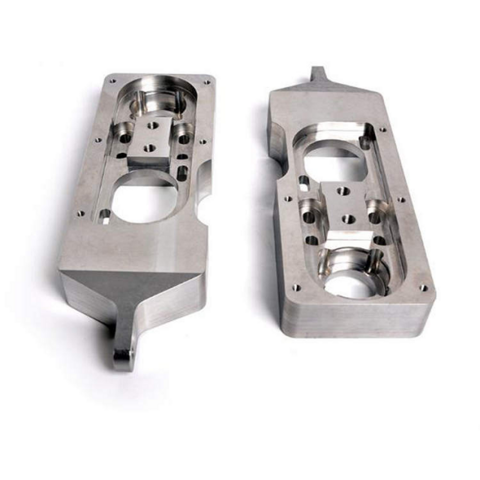The 25-Second Trick For Alcast Company
Table of ContentsSome Ideas on Alcast Company You Need To KnowSome Known Incorrect Statements About Alcast Company The Only Guide to Alcast CompanyAn Unbiased View of Alcast CompanyNot known Factual Statements About Alcast Company The smart Trick of Alcast Company That Nobody is Talking About
The subtle difference hinges on the chemical material. Chemical Comparison of Cast Light weight aluminum Alloys Silicon promotes castability by decreasing the alloy's melting temperature and enhancing fluidity throughout spreading. It plays an essential function in permitting complex mold and mildews to be filled up properly. In addition, silicon contributes to the alloy's stamina and use resistance, making it beneficial in applications where sturdiness is important, such as vehicle parts and engine elements.It also enhances the machinability of the alloy, making it simpler to refine right into finished items. This way, iron adds to the overall workability of light weight aluminum alloys. Copper increases electric conductivity, making it beneficial in electrical applications. It likewise enhances rust resistance and includes in the alloy's total toughness.
Manganese adds to the strength of aluminum alloys and enhances workability. Magnesium is a lightweight component that supplies stamina and impact resistance to aluminum alloys.
A Biased View of Alcast Company
It permits the manufacturing of light-weight elements with superb mechanical properties. Zinc improves the castability of light weight aluminum alloys and assists regulate the solidification process throughout casting. It improves the alloy's toughness and solidity. It is commonly found in applications where complex shapes and great details are necessary, such as attractive spreadings and certain vehicle parts.

The key thermal conductivity, tensile stamina, return strength, and prolongation differ. Select appropriate basic materials according to the performance of the target product generated. Among the above alloys, A356 has the highest possible thermal conductivity, and A380 and ADC12 have the lowest. The tensile limit is the opposite. A360 has the very best yield toughness and the greatest elongation price.
Some Known Questions About Alcast Company.

In accuracy spreading, 6063 is well-suited for applications where detailed geometries and top notch surface finishes are extremely important. Instances include telecommunication units, where the alloy's premium formability enables smooth and visually pleasing designs while maintaining architectural integrity. Likewise, in the Lighting Solutions industry, precision-cast 6063 elements develop sophisticated and efficient illumination components that need complex forms and good thermal efficiency.
It leads to a better surface finish and much better corrosion resistance in A360. In addition, the A360 exhibits exceptional elongation, making it excellent for complicated and thin-walled parts. In accuracy spreading applications, A360 is fit for sectors such as Consumer Electronics, Telecommunication, and Power Tools. Its improved fluidity enables for detailed, high-precision parts like mobile phone coverings and communication gadget housings.
The Buzz on Alcast Company
Its special properties make A360 a beneficial choice for accuracy spreading in these markets, improving item durability and quality. Aluminum alloy 380, or A380, is a commonly used casting alloy with a number of distinct qualities. It supplies exceptional castability, making it an ideal selection for precision spreading. A380 exhibits good fluidness when molten, making certain elaborate and in-depth mold and mildews are precisely duplicated.
In precision casting, light weight aluminum 413 beams in the Customer Electronic Devices and Power Devices industries. This alloy's exceptional deterioration resistance makes it an exceptional selection for outside applications, making certain resilient, long lasting products in the discussed industries.
The Ultimate Guide To Alcast Company
The light weight aluminum alloy you pick will significantly affect both the spreading process and the properties of the last item. Since of this, you need to make your choice very carefully and take an enlightened method.
Establishing one of the most ideal aluminum alloy for your application will imply considering a wide selection of characteristics. These comparative alloy attributes comply with the North American Pass Away Casting Association's standards, and we've split them into two classifications. The very first classification addresses alloy attributes that influence the production process. The second covers features influencing the buildings of the end product.
The Basic Principles Of Alcast Company
The alloy you choose for die casting straight influences numerous elements of the casting process, like how very easy the alloy is to deal with and if it is susceptible to casting problems. Warm splitting, also recognized as solidification fracturing, is a normal die spreading problem for light weight aluminum alloys that can result in internal or surface-level rips or splits.
Particular light weight aluminum alloys are more at risk to warm breaking than others, and your selection must consider this. Another typical problem located in the die casting of light weight aluminum is pass away soldering, which is when the cast stays with the die wall surfaces and makes ejection challenging. It can harm both the cast and the die, so you need to seek alloys with high anti-soldering homes.
Rust resistance, which is currently a remarkable attribute of light weight aluminum, can differ considerably from alloy to alloy and is a vital characteristic to take into consideration depending on the ecological problems your product will be revealed to (aluminum foundry). Put on resistance is an additional property frequently looked for in aluminum products and can differentiate some alloys
 Judge Reinhold Then & Now!
Judge Reinhold Then & Now! Burke Ramsey Then & Now!
Burke Ramsey Then & Now! Karyn Parsons Then & Now!
Karyn Parsons Then & Now! Batista Then & Now!
Batista Then & Now! Mary Beth McDonough Then & Now!
Mary Beth McDonough Then & Now!